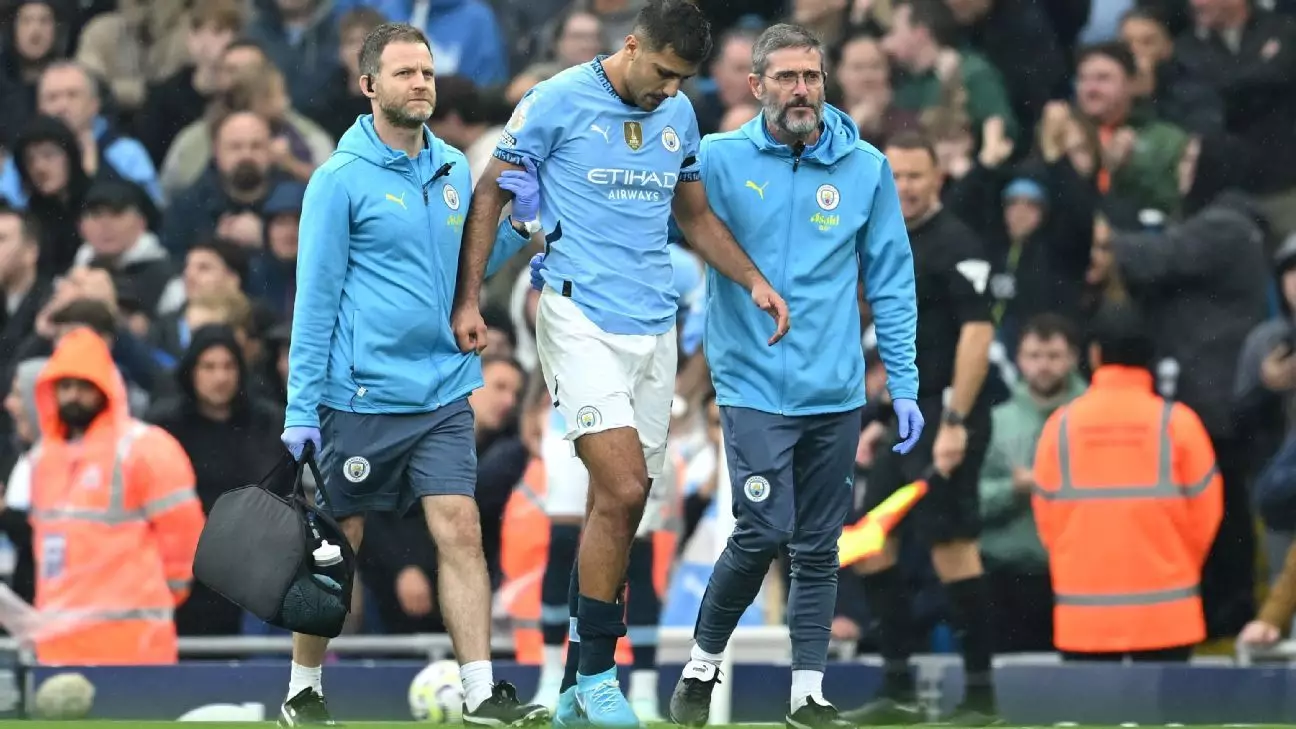When it comes to the pressing issue of player workload in football, the debate is rarely straightforward. The narrative often suggested by pundits paints a picture of a binary conflict: players versus club owners. However, this oversimplification disregards the multiple stakeholders entangled in the sport’s ecosystem. From football associations, leagues, and clubs— ranging from elite to grassroots levels— to media rights holders and fans, the football landscape is dotted with competing interests. Each group has its own agenda, which necessitates a more nuanced discussion than simply pitting one side against the other.
The crux of the matter is that everyone is playing on their own field, driven by their respective interests. Acknowledging this complexity is crucial for developing constructive solutions that balance the many contrasting desires within the sport. Each faction presents its arguments—from player unions advocating for welfare to clubs pushing for more revenue through match days. Yet, at its heart, this issue revolves around one central concept: the players themselves, particularly a small fraction of elite footballers driving global viewership and financial returns.
The players’ situation is less homogenous than often presumed. While stars like Kevin De Bruyne and Erling Haaland empathize with the burdens of excessive playing schedules, many of their teammates—often younger or less prominent—desire more game time to further their careers. Take Matheus Nunes, for instance, who appeared sparingly last season, or Jack Grealish, whose significant transfer fee may indicate pressure to deliver while juggling numerous commitments. The reality is that while a minority is voicing concern over the burden of an overflowing fixture list, a larger pool of players is desperate for the chance to showcase their talents on the pitch.
In this context, the football clubs themselves are a web of contradictions. On one hand, pitchers of potential revenue streams demand as many fixtures as possible—be it domestic or international friendlies—while also securing titles, reputations, and player engagement. Clubs understand that a packed calendar is financially beneficial, but they also grapple with the reality that a season’s wear and tear on their players could compromise future successes. Yet, there often seems to be little sympathy for those feeling the strain.
Player unions play a dual role: advocating for the welfare of athletes, while tactically navigating the minefield of conflicting priorities. In leagues without formal collective bargaining agreements, players at different levels are subtly pitted against each other. While the problem of “overload” often garners headlines, the issues of “underload” must not be neglected. Highlighting the disparity between those privileged enough to command attention and those who struggle for minutes is essential.
Unions must tread carefully as they address player well-being without inciting a backlash from clubs, leagues, and associations that prosper from the current structure. Rather than attacking the domestic leagues, where players often endure fewer fixtures, focus should instead be on the repercussions of expanded formats in continental competitions—such as the UEFA Champions League or FIFA’s Club World Cup. These developments often emerged from the clubs’ own requests for more revenue and exposure, complicating the narrative of suffering players versus greedy corporations.
At its core, the football industry revolves around financial incentives. With clubs feeling the heat of overspending, they seek revenue wherever possible—including more games, which in turn complicates player schedules. This poses an opportunity for compromise. Perhaps the focus shouldn’t just be on reducing matches but also on recalibrating player salaries to reflect adjusted workloads. A potential pathway could be agreements that allow players to take fewer fixtures in exchange for reduced wages, thus maintaining financial areas of concern for clubs.
Carlo Ancelotti’s suggestion of wage adjustments for players opting for lighter schedules is a thought-provoking route worth exploring. By negotiating contracts that factor in available playing time, clubs not only establish a buffer for their finances but also embrace a humane approach to athlete health. Adjustments could cater to an individual player’s situation, whether it concerns overall minutes played monthly or specific rest periods.
Ultimately, the solution isn’t simply to redistribute the burden of play but to structure an environment that works collectively for all parties involved. Mandatory rest periods, load management based on data-rich metrics, and player input in scheduling could all foster healthier career trajectories while also preserving the commercial aspects driving modern football.
The complexities of football’s operational structure highlight the repercussions of competing interests and misaligned incentives. Understanding this can guide us toward a more balanced and sustainable future for the sport, ensuring that as the game grows commercially, those who keep it alive—its players—are adequately supported as well.
By focusing on mutual cooperation and acknowledging the distinct needs of players at various levels, football can secure its legacy as a compelling spectacle while safeguarding the health of those who make it possible. Recognizing the power dynamic that lies with the elite players may ultimately prompt a necessary compromise, setting the stage for a healthier football ecosystem where everyone can thrive.

